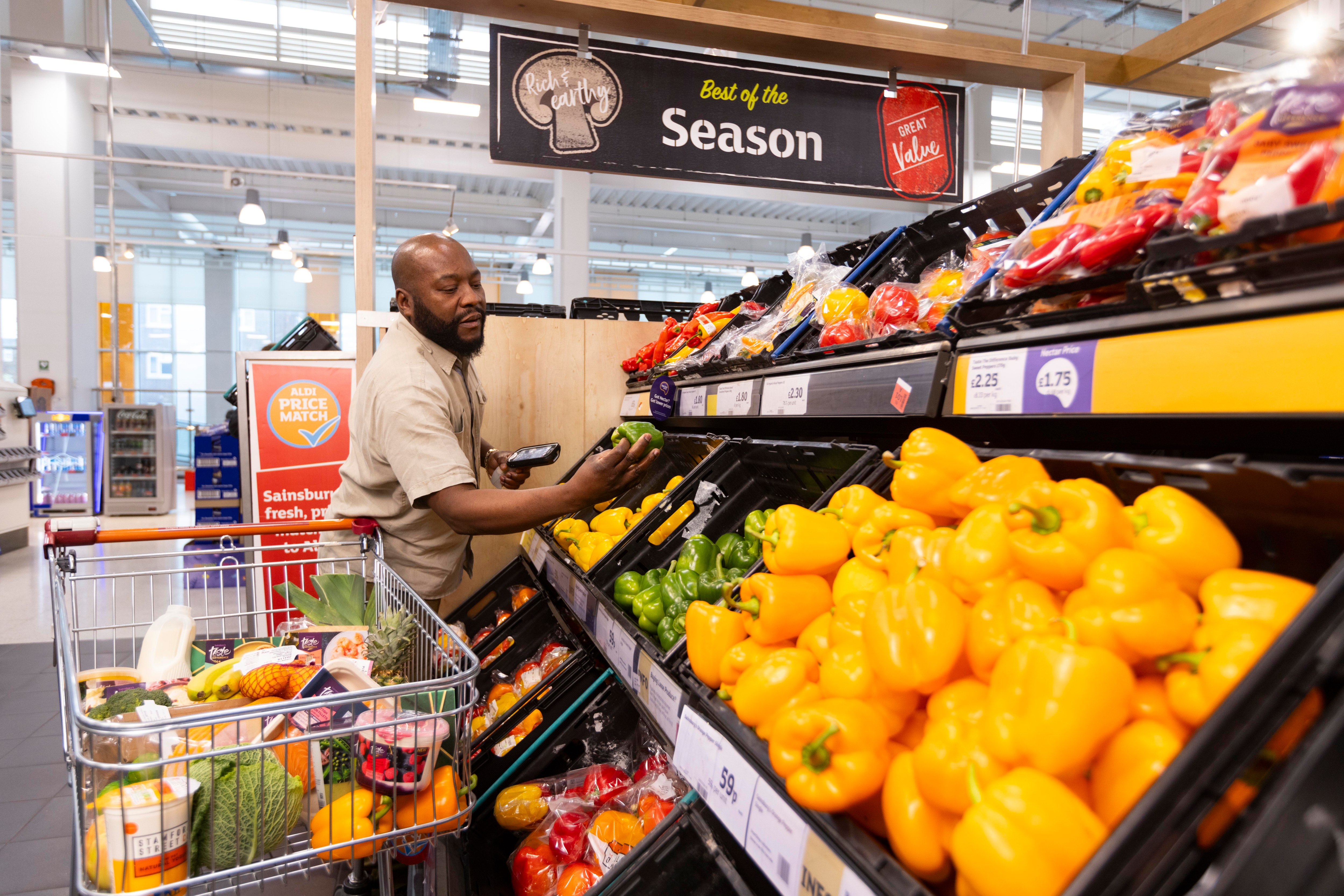Sainsbury’s is taking a significant step in the supermarket price competition by being the first retailer to extend its Aldi price-match initiative to its convenience stores.
This strategic move aims to regain market share from German discount retailer Aldi. The UK’s second-largest supermarket chain has commenced price matching on 200 essential items—such as milk, chicken, bread, and vegetable oil—in 800 of its local stores starting this week.
This initiative is part of Sainsbury’s £1 billion investment to enhance value for its customers, adapting its offerings to become more competitive.
The Aldi price-match program is set to replace Sainsbury’s previous “pocket-friendly prices” initiative, which was introduced last year to help customers identify less expensive options in its Local stores.
Simon Roberts, who has served as CEO since 2020, mentioned to The Times that the decision to launch this campaign stemmed from customer feedback expressing satisfaction with the convenience of Sainsbury’s Local stores, alongside a desire for better value on frequently purchased items.
“Customers want assurance that they are receiving the best value,” Roberts noted.
Sainsbury’s initiated the Aldi price match program online and in its larger retail locations in 2021, as part of a broader strategy to emphasize quality and value in its food selection.
To counter the challenges posed by Aldi’s low-cost strategy, other supermarket chains such as Tesco and Morrisons have also adopted price-match programs.

Aldi has quickly ascended to be among the most favored—if not the largest—supermarkets in the UK, securing its title as the nation’s preferred supermarket this year according to YouGov, primarily by offering competitive prices, exclusive branded products, and a focus on British meat.
In 2022, Aldi became the fourth-largest supermarket chain in the UK, surpassing Morrisons and shaking up the competition that had been relatively stable for two decades, featuring Tesco, Sainsbury’s, Asda, and Morrisons. Last April, Aldi’s market share exceeded 10% for the first time as consumers became more budget-conscious.
Lidl, another German discount supermarket, has also gained a substantial portion of the UK grocery market share.
Roberts remarked, “The UK grocery sector is one of the most, if not the most competitive markets globally,” highlighting the emergence of many smaller supermarket chains. He noted the necessity for Sainsbury’s to remain competitive on everyday products to ensure that customers feel confident in the value offered.
He emphasized that matching Aldi’s prices “provides real confidence” to customers, especially during financially challenging times.
The rollout of the price-match initiative aligns with Sainsbury’s broader strategic plan launched earlier this year, which builds on Roberts’ “food first” approach introduced in 2020, focusing on keeping food at the forefront to mitigate customer migration to Aldi and Lidl.
As part of this strategy, Sainsbury’s plans to “rebalance” 180 of its larger supermarkets in the next three years to significantly increase food offerings. At present, only 15% of Sainsbury’s stores provide the complete food range.
By reallocating space currently dedicated to general merchandise and clothing—which have negatively impacted performance—the chain aims to increase food space by more than 300,000 square feet. Additionally, a major revamp of approximately 800 Local convenience stores is underway.
Executives believe that Sainsbury’s convenience stores could cater more effectively to local shoppers, prompting a redesign to improve layouts and expand product ranges by 7%. They are also increasing the availability of on-the-go or “dine-in” meal options.
The convenience sector has experienced renewed growth this past year as more employees return to offices.
Sainsbury’s has set a target to open between 20 and 25 new Local stores annually, continuing its expansion which includes more large-format supermarkets.
The grocery chain plans to debut a new convenience outlet at Edinburgh Airport in December, taking the place of a previous Marks & Spencer unit, marking its first store in an airport.
Additionally, other supermarket chains are also focusing their efforts on convenience. For example, Waitrose plans to launch 100 additional convenience stores over the next five years, backed by a £1 billion investment, while Marks & Spencer is set to open ten new convenience locations this year and renovate up to 50 existing ones.
Meanwhile, Asda announced plans to inaugurate a record 110 Express shops, aiming to fortify its presence across the UK. Morrisons is targeting the opening of 400 more Morrisons Daily convenience stores, with a goal of reaching 2,000 smaller stores by 2025.
Roberts concluded, “Whether on the way to work or traveling from a station, local stores are vital in people’s daily lives.”
